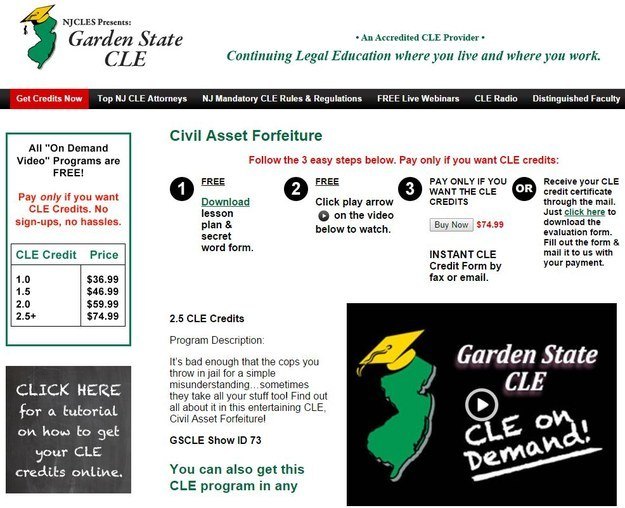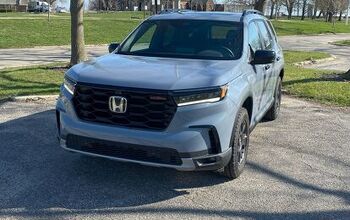New York Times: Police Use of Civil Forfeiture Targets Cars, Criminals Perhaps Less So

Perhaps if it was published somewhere else it might have been dismissed as a libertarian rant, but an article in the New York Times about police abuse of civil forfeiture laws, where innocent property owners face the task of proving that their property hasn’t been used illegally (something that seems at odds with the American concept of innocent until proven guilty) is getting a lot of attention. Video of seminars teaching cops and prosecutors how to seize private property have surfaced and they make it seem like law enforcement is less concerned with, well, law enforcement than they are with taking your stuff. Instructions like, “If in doubt… take it!” don’t make it seem like justice is a concern. What was intended by legislators as a means to go after the tools of illegal trades has become a method of padding budgets, buying cop toys and, in what would surely be seen by prosecutors as at the very least a conflict of interest if it was in the private sector, paying the salaries of prosecutors who handle civil forfeiture cases. The Times story revels disturbing practices like wish lists of property to be seized. High on the lists are cars. Can you prove that your car wasn’t used for a crime? The government wins 96% of civil forfeiture cases.
Comments made on at one of those seminars by Harry Connelly Jr., Las Cruces, New Mexico’s city attorney have prompted the description of “policing for profit”.
From the NYT:
The seminars offered police officers some useful tips on seizing property from suspected criminals. Don’t bother with jewelry (too hard to dispose of) and computers (“everybody’s got one already”), the experts counseled. Do go after flat screen TVs, cash and cars. Especially nice cars.
In one seminar, captured on video in September, Harry S. Connelly Jr., the city attorney of Las Cruces, N.M., called them “little goodies.” And then Mr. Connelly described how officers in his jurisdiction could not wait to seize one man’s “exotic vehicle” outside a local bar.
“A guy drives up in a 2008 Mercedes, brand new,” he explained. “Just so beautiful, I mean, the cops were undercover and they were just like ‘Ahhhh.’ And he gets out and he’s just reeking of alcohol. And it’s like, ‘Oh, my goodness, we can hardly wait.’ ”
If that attitude raises your blood pressure, don’t watch these other civil forfeiture seminar videos at Buzzfeed. Prosecutors can even get continuing legal education credit for attending what are advertised as “entertaining” classes on how lawmen and lawwomen can legally steal your property. At one of those CLE courses, Mercer County, New Jersey prosecutor Sean McMurtry teaches his colleagues how to overcome the fact that the owner of a car is innocent, that in fact criminals don’t own most of the cars they seize, and to use a policy of “If in doubt… take it!”

Ronnie Schreiber edits Cars In Depth, the original 3D car site.
More by Ronnie Schreiber
Latest Car Reviews
Read moreLatest Product Reviews
Read moreRecent Comments
- IBx1 Everyone in the working class (if you’re not in the obscenely wealthy capital class and you perform work for money you’re working class) should unionize.
- Jrhurren Legend
- Ltcmgm78 Imagine the feeling of fulfillment he must have when he looks upon all the improvements to the Corvette over time!
- ToolGuy "The car is the eye in my head and I have never spared money on it, no less, it is not new and is over 30 years old."• Translation please?(Theories: written by AI; written by an engineer lol)
- Ltcmgm78 It depends on whether or not the union is a help or a hindrance to the manufacturer and workers. A union isn't needed if the manufacturer takes care of its workers.


































Comments
Join the conversation
Don't let the door hit you on the way out, ;-)
Charlie ; Fear is not an American value . Neither is quitting . -Nate